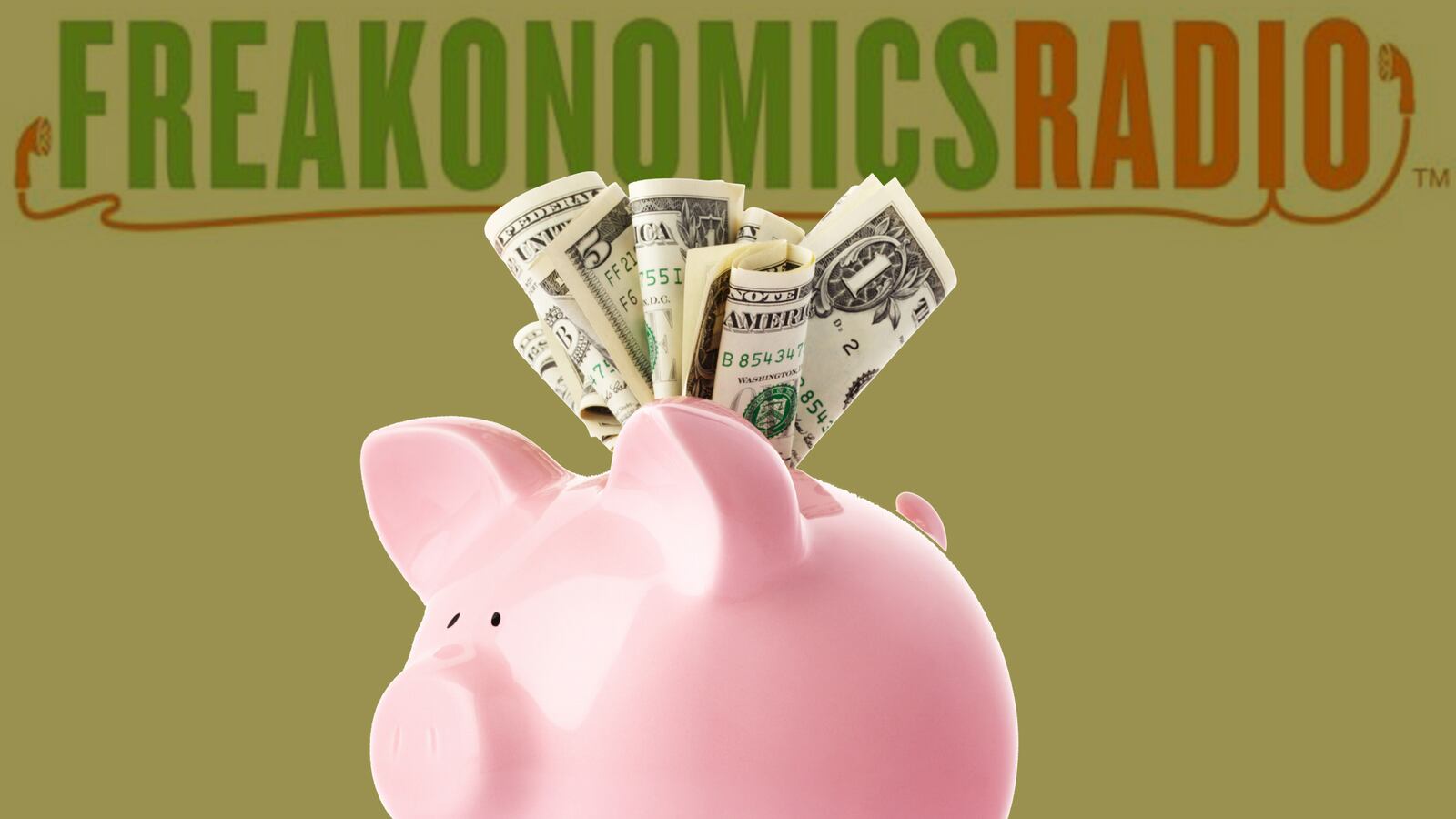Hawaiians who want to turn their savings accounts into potential lottery-winning jackpots can thank a fan of the hit podcast Freakonomics for making it happen.
Earlier this year, the state’s legislature passed a bill paving the way for state banks and credit unions to establish prize-linked savings accounts, which encourage individuals to save their money in banks by automatically entering those who do in lotteries to win cash prizes.
What was interesting about this particular bill, however, was not the incentive structure it created but how it originated legislatively. The bill was partially inspired by Casey Nakamura—then a Boston University undergraduate student—who told her mom, a state representative, about prize-linked savings after learning about them on an episode of Freakonomics.
“I was walking back from Trader Joes, and I was listening to the podcast. As soon as I got home, I looked into it, and I called my mom and said ‘You’ve got to do this,’” she told The Daily Beast.
Remarkably, she wasn’t the only one turned into a de facto lobbyist by the podcast.
Over the past two years, a single episode of Freakonomics has compelled several young listeners to push for legislation incentivizing people to save while getting a chance to win free money from their bank.
The original episode actually aired nine years ago. In it, Freakonomics spotlighted the popularity abroad of a then-lesser-known financial mechanism that some foreign banks were experimenting with called “prize-linked savings.” The term referred to incentives some banks outside the U.S. were using to encourage people—particularly those without a history of saving much money—to put money in savings accounts by automatically enrolling savers in lottery-like sweepstakes to win prizes.
The benefits were obvious. Numerous studies have shown that lotteries tend to take money from lower-income individuals. And many low-income individuals, as well as those from even slightly more affluent households, do not have significant savings that can be drawn on in case of emergencies.
The appeal, according to the episode, was the ability for prize-linked savings to incentivize those people who should be saving more to increase savings by giving them the opportunity of winning big, and to do it all with none of the losses that come with regularly buying a lottery ticket. Most prize-linked savings accounts put the interest earned on savings into a pool and randomly award savers at regular intervals. Research around the benefits of prize-linked savings indicated that there was little downside for participants, and that the contests encouraged saving among many individuals who otherwise wouldn’t save.
The concept intrigued Michael Gaudini, who heard the episode when he was working as an intern for a state representative in Pennsylvania. He told The Daily Beast he immediately saw its bipartisan appeal.
Over the next several years, he used his platform as a staffer in the Texas state legislatures to push for laws allowing states to permit banks to create lottery-like prizes encouraging people to put money in their savings accounts.
After several years, Texas joined a number of other states in allowing banks to begin experimenting with prize-linked savings. When the ballot initiative was approved in 2017, Gaudini emailed the Freakonomics staff to thank them for their inspiration. In-turn, the show re-aired the original episode.
This time, Nakamura happened to be listening.
She immediately called her mother, Hawaii Democratic state Rep. Nadine Nakamura, and suggested she look into whether allowing prize-linked savings would be a good idea for Hawaii. The younger Nakamura hadn’t been involved in advocating for specific state legislation in the past, so she drafted up a memo with several links about the benefits of prize-linked savings, and sent it to her mother, who started working with staff to research the impacts of prize-linked savings.
When the bill passed this year, she, like Gaudini, reached out to the show.
“I convinced my mom (Rep. N.) that this was a bill she needed to introduce and helped her pitch it to the various committees and private entities whose support we needed to get it through,” she said in an email to the show producers.
Freakonomics was far from the only news outlet to cover the increasing popularity of prize-linked savings in both the US and abroad.
Over the past several years, other outlets including the New York Times, USA Today, and Bloomberg have also reported on the rise of these types of savings accounts as an incentive to encourage savings. In the years since the episode aired in 2010, the body of economic research in the US about prize-linked savings has also jumped.
Congress also took notice. In 2014, the U.S. Senate unanimously passed a law rolling back impediments for federally chartered banks hoping to create prize-linked savings accounts.
The Freakonomics team has been thrilled.
“When initiatives that are empirically proven to be effective become reality, that’s pretty much what we live for at Freakonomics Radio,” Freakonomics Radio executive producer Alison Craiglow said.





